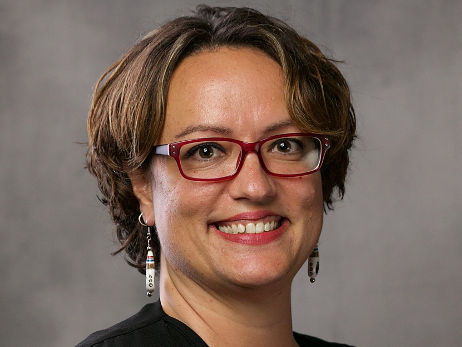Taking care of your mental health in college can be one of the most challenging but beneficial things you can do at UT Southern.
To help support your success in college, it’s essential to prioritize your mental health — look out for on-campus support, social connections, and opportunities to engage with our community.
Counseling Services
Free, professional counseling services are available to all currently enrolled UT Southern students.
Reminders From The Counselors
Struggling with mental health looks different for everyone. Some people change their behavior drastically, becoming withdrawn or more extravagant than usual when their demeanor is usually quite different. But some people continue life, appearing quite normal and unchanged. Knowing yourself and knowing your friends is an essential step in making sure you and those around you have the support you all need.
How do I know when I need professional help? When it interferes with living your best life or reaching your goals, seek help. Call 931-424-7338 or email utsclinic@utsouthern.edu.
Sessions are free, confidential, voluntary, and all about you. Our first session usually involves paperwork, psychoeducation, and getting to know you. Afterward, we’ll meet as needed or help link students with resources. The most common issues at UT Southern are anxiety or stress, grief issues, adjustment issues, and depression.
Desiree also hosts conversations and workshops, which you can find on YouTube.
Support and Allies
Sometimes, students need professional counseling services; sometimes, they need a shoulder to lean on. Our faculty and staff are always happy to listen and connect students to additional resources as needed. A few great contacts for students looking for support are below:
| Name | Title | Office Location | |
|---|---|---|---|
| Sarah Catherine Richardson | Dean of Students | scrich@utsouthern.edu | 2nd Floor; Student Life Center |
| Matthew Little | Student Success Coordinator | mlittl32@utsouthern.edu | 2nd Floor; Colonial Hall |
| Brandie Paul | Athletic Director | bpaul7@utsouthern.edu | Curry Athletic Complex |
| Pat Ford | Director of FYE | pford10@utsouthern.edu | 200 Johnston Center |
Tips and Resources
The National Alliance on Mental Illness reminds us that, while college can be emotionally challenging, it’s still possible to enjoy and grow from the experience.
Here are some tips and resources to help you with your mental health.
Even those who have not experienced mental health problems in the past should begin to think ahead and take steps to help ease the emotional challenges of being in college.
Establishing a self-care routine and healthy habits can make a big difference. Whether you live at home, in a residence hall, or in an off-campus apartment with others, getting adequate sleep, maintaining good nutrition, and engaging in regular exercise will help keep your mind and body in good condition.
Making time for hobbies and social activities can also help you maintain a positive mood. With new demands and responsibilities, finding a good balance and keeping a regular schedule can be very helpful.
Before college, most young people receive health care through their family’s health insurance and primary care providers, and parents or guardians will often be involved in care decisions. When you turn 18, you gain more control and privacy regarding your healthcare. For example, your healthcare providers cannot share your health information with parents, guardians, or anyone else without your permission (except in rare circumstances). You can find more info on this topic in NAMI’s college guide.
It’s important to ensure continuity of care if you have a mental health condition and are moving away to start school. It can be helpful to consider how you will continue your treatment, your options for finding new care (should you need it), and how/when you are comfortable sharing information about your health with family or others in your support system.
Developing A Plan For Treatment
Having a clear plan for managing mental health care when you get to UT Southern is essential to support your wellness or recovery, ensure your safety, and maximize your success. Starting college when you already have a mental health condition might feel scary, but a pre-existing diagnosis does not necessarily increase the risk of struggling academically.
We offer free, confidential counseling here on campus. It is designed to serve as short-term talk therapy or acute care/crisis service, but we can help you find local clinicians for long-term care! Many students also find that their home therapist can continue working with them through telehealth or help them find providers and support options in our area.
Developing A Crisis Plan
In addition to planning for your ongoing or “maintenance” mental health treatment, it is also helpful to consider how you might deal with emerging problems or crises. Discuss with your current provider, your family, and others in your support network, and consider putting your plan in writing. Every plan is individualized, but common elements include:
- Contact information for your current mental health providers
- A list of current medications (including dosage)
- Contact information for your pharmacy
- Notes on your medical history, including physical health conditions
- Your preferences for who the school should contact — and under what circumstances
It’s important to remember that mental health symptoms are unpredictable — no one plans to have a crisis, and it can be unpleasant to think about, but the best time to develop a crisis plan is when you are doing well.
Starting college is a major life transition; even the best plans may need adjustments as you settle in. Keep an open conversation with your mental health provider, family, and others in your support network to determine what is going well and what might be necessary to improve your mental wellness plan.
Accommodations
UT Southern is happy to provide reasonable accommodations to students with a condition impacting their ability to function at school. If you need support in the classroom, documentation can be provided through the Provost’s Office; contact Brittany Fralix at fralbr18@utsouthern.edu or call 931-424-2011 if you have questions. If you need help outside of the classroom, please get in touch with the Dean of Students, Sarah Catherine Richardson, at scrich@utsouthern.edu or call 931-424-4073.
There may be a time when a serious mental health problem emerges, or an existing situation escalates, resulting in a crisis. If you feel that you cannot keep up with your academic responsibilities — or that staying in school/on campus might be unsafe or unhelpful for your well-being — be aware that we have a process for taking time off in a mental health emergency.
If you notice that your mental health negatively impacts your coursework or daily responsibilities, informing your faculty members or on-campus support system early on can be helpful. Some mental health issues are temporary and may improve with adjustments to your schedule or care strategies, allowing you to complete the term successfully. For example, we can help you adjust your course schedule.
If it is not practical or reasonable for you to continue your current semester, consider taking a leave of absence, sometimes called medical or mental health withdrawal (temporarily withdrawing from school due to a medical or mental health issue). You will be asked to provide documentation from a treating clinician that you are experiencing a serious problem that makes it difficult or unsafe for you to remain in school. This process is normal for any struggling student; don’t hesitate to reach out if you need guidance and support. We can help you navigate the financial implications, explore your housing options, and guide you through the return or re-enrollment process.
Starting the Conversation: College and Your Mental Health
This guide allows parents and students to learn more about mental health, including the privacy laws and how mental health information can be shared.
Navigating a Mental Health Crisis Guide
This guide provides important, potentially life-saving information for people experiencing mental health crises and their loved ones. This guide outlines what can contribute to a crisis, warning signs that a crisis is emerging, strategies to help de-escalate a crisis, available resources, and so much more.
Our Campus Counselors
Our Campus Counselors meet with students to respond to crises, build skills, and listen to concerns.

Desiree Stone, LPC
To schedule an appointment with Desiree, text or email. Sessions are available in person at the Clinic or via a confidential, secure virtual platform.

Elaine Murray, MSN, PMHNP, FNP-C
Elaine provides free psychiatric medicine management, assessments, and counseling sessions for current students at Giles Psychiatric Associates in downtown Pulaski.
Mental Health Supports Groups and Activities
Grief Groups
Contact dstone18@utsouthern.edu if you are interested in meeting as a weekly group about grief.
Recovery Groups
Contact dstone18@utsouthern.edu if you are interested in participating in or facilitating a student Recovery group on campus.
Wellness Wednesday Activities and Events
Multiple and various small activities and big events throughout the school year are planned purposefully to educate and support student’s wellness.
Recovery Friendly Campus
UT Southern is certified by the State Department of Mental Health & Substance Abuse Services as a Recovery Friendly Campus.
You Are Not Alone
If you or someone you know is in crisis, call the Suicide and Crisis Lifeline by dialing 988.



